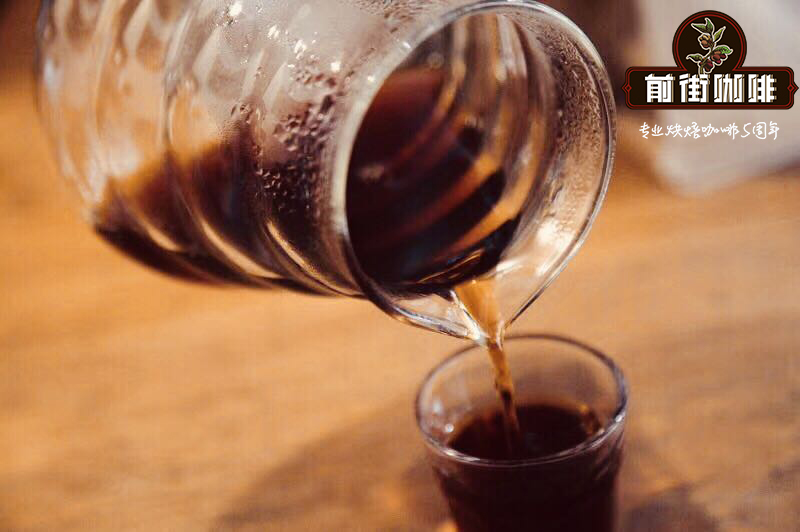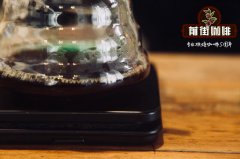What is Ecuadorian Flower God coffee? Description of taste and aroma of Ecuadorian coffee

Professional coffee knowledge exchange more coffee bean information please follow the coffee workshop (Wechat official account cafe_style)
About 1000Km from Ecuador in South America, the islands directly below the equator in the Pacific Ocean are also the islands of the famous GALAPAGOS penguins. This is the island of GALAPAGOS in Ecuador. The coffee produced here is rarely known.
The island is recognized by the United Nations Educational, Scientific and Cultural Organization (USECO) as a natural park, and the law stipulates that no chemical fertilizers can be used here, so it is also recognized by the OCIA of the United States as the place where organic coffee is produced.
The place where coffee is grown is an island called SAN CRISTOBAL, which is about 800m high. It is covered with thick fog and is covered with dense plants. The water gushing from the central crater forms an El Junko lake, and coffee is grown on this perfect natural ecological surface.
The following picture shows the origin of the Darwinian species of elephant turtles! This is where it appeared!
Borubon seeds were brought into the area by Don Manual J Gobos in 1875 and began to be planted. At first, the planting area was only 200ha, and the current planting area is only about 400 ha. SANCRISTOBAL's total annual production is only 1150 bags (each bag of 45kg) very little! Really very few!
The correct name of the farm is Hacienda El Cafetal San Cristabal
Because the island is recognized as a natural park by the United Nations Educational, Scientific and Cultural Organization (USECO), and the law stipulates that no chemical fertilizers can be used here, it is also recognized by the OCIA of the United States as the production place of organic coffee.
Important Notice :
前街咖啡 FrontStreet Coffee has moved to new addredd:
FrontStreet Coffee Address: 315,Donghua East Road,GuangZhou
Tel:020 38364473
- Prev

Coffee industry living fossil Yemeni mocha coffee how to drink Yemeni mocha hanging ear coffee which brand is good
Professional coffee knowledge exchange more coffee bean information Please follow Coffee Workshop (Wechat official account cafe_style) has the most unique, rich and fascinating complex smell in the world: red wine, wild game, dried fruit, blueberry, grape, cinnamon, tobacco, sweet spices, log and even chocolate you can see all kinds of adjectives used to describe Yemeni mocha.
- Next

Ecuador coffee rumba producing area Zumba information introduction Ecuador coffee expensive how to buy
Professional coffee knowledge exchange more coffee bean information please follow the coffee workshop (Wechat official account cafe_style) Ecuador Lomba Aklin Farmers Association Ecuador Zumba ACRIM national (Ecuador) producing area Zumba, Zamora-Chinchipe 1300-1900 meters above sea level planted varieties Tibica (Typica), Kaddura (Caturra) and bourbon (B)
Related
- Detailed explanation of Jadeite planting Land in Panamanian Jadeite Manor introduction to the grading system of Jadeite competitive bidding, Red bid, Green bid and Rose Summer
- Story of Coffee planting in Brenka region of Costa Rica Stonehenge Manor anaerobic heavy honey treatment of flavor mouth
- What's on the barrel of Blue Mountain Coffee beans?
- Can American coffee also pull flowers? How to use hot American style to pull out a good-looking pattern?
- Can you make a cold extract with coffee beans? What is the right proportion for cold-extracted coffee formula?
- Indonesian PWN Gold Mandrine Coffee Origin Features Flavor How to Chong? Mandolin coffee is American.
- A brief introduction to the flavor characteristics of Brazilian yellow bourbon coffee beans
- What is the effect of different water quality on the flavor of cold-extracted coffee? What kind of water is best for brewing coffee?
- Why do you think of Rose Summer whenever you mention Panamanian coffee?
- Introduction to the characteristics of authentic blue mountain coffee bean producing areas? What is the CIB Coffee Authority in Jamaica?

